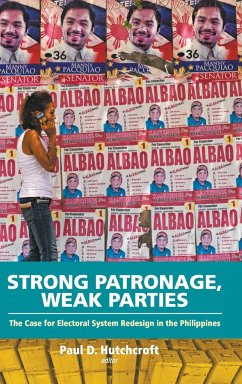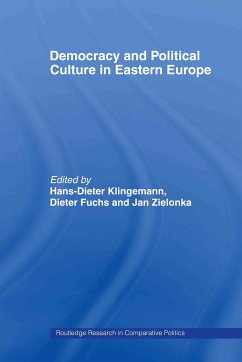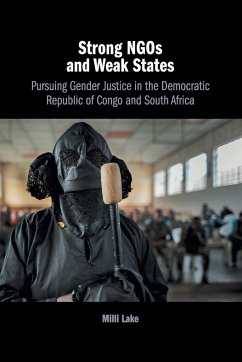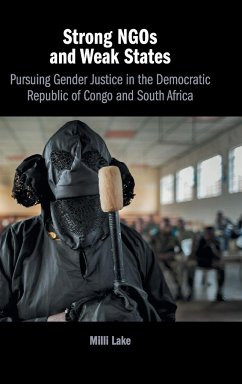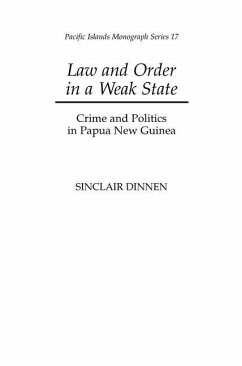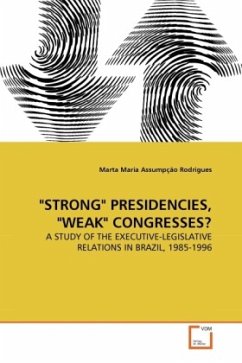
"STRONG" PRESIDENCIES, "WEAK" CONGRESSES?
A STUDY OF THE EXECUTIVE-LEGISLATIVE RELATIONS IN BRAZIL, 1985-1996
Versandkostenfrei!
Versandfertig in 6-10 Tagen
52,99 €
inkl. MwSt.

PAYBACK Punkte
26 °P sammeln!
Challenging the perception that the Brazilian legislatures of the post-transitional period constitute a marginal institution in policy and decision-making, this study takes into account the politics of executive-legislative relations as an analytically distinct research target. It departs from the proposition that, in contexts of low degree of institutionalization, the limits and reaches of congressional-executive powers rely upon variations of time and is relational to the issue and policy-area at stake. In this vein, by developing an appropriate methodology that combines a classificatory sch...
Challenging the perception that the Brazilian legislatures of the post-transitional period constitute a marginal institution in policy and decision-making, this study takes into account the politics of executive-legislative relations as an analytically distinct research target. It departs from the proposition that, in contexts of low degree of institutionalization, the limits and reaches of congressional-executive powers rely upon variations of time and is relational to the issue and policy-area at stake. In this vein, by developing an appropriate methodology that combines a classificatory scheme of legislation initiated by both branches, from 1985 to 1996, with extensive interviewing, and a survey questionnaire, this study aims at contributing to further our understanding of a crucial factor that affects the institutionalization of democracy in Brazil: the way presidents and congresses interact in practice.




